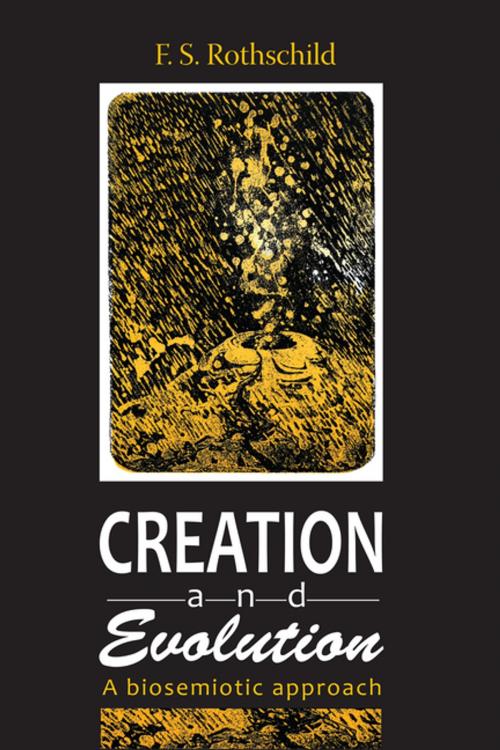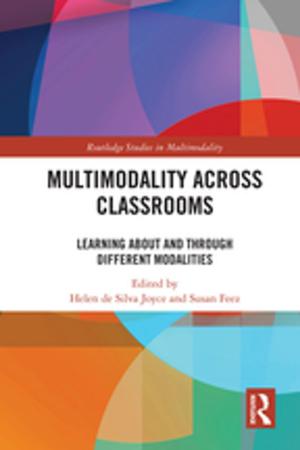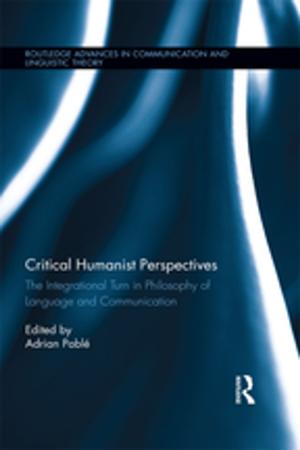Creation and Evolution
A Biosemiotic Approach
Nonfiction, Social & Cultural Studies, Social Science, Sociology| Author: | Friedrich S. Rothschild | ISBN: | 9781351525213 |
| Publisher: | Taylor and Francis | Publication: | May 4, 2018 |
| Imprint: | Routledge | Language: | English |
| Author: | Friedrich S. Rothschild |
| ISBN: | 9781351525213 |
| Publisher: | Taylor and Francis |
| Publication: | May 4, 2018 |
| Imprint: | Routledge |
| Language: | English |
The issues surrounding Darwin's theory of evolution as a function of the survival of the fittest have hardly abated since they were initially promulgated about 150 ago. The reason is clear: behind the theory of evolution is a doctrine of structure of organisms that can be explained only by fitting the adaptation to the external world. The older doctrines of creation have been at odds with evolutionism from the outset--sometimes utilizing straight theological arguments and at other times employing sophisticated scientific arguments. Into the breach steps Friedrich S. Rothschild, a trained neurologist, psychologist and physician. On the basis of his researches in comparative embryology, Rothschild argues that the central nervous system of animals as well as humans conveys meaning just like language, and not just a system aimed at adaptation to the external environment. His theory of biosemiotics introduces the concept of inner adaptation. This adaptation to the principal forces assign meaning to life. In monotheistic religions this force is called God. The issue of adaptation is therefore both external and internal, related to growth of the person no less than the environment. This book is intended for those who are interested in life and its varied meanings, to students of sociobiology and medicine as well as those concerned with humanities.
The issues surrounding Darwin's theory of evolution as a function of the survival of the fittest have hardly abated since they were initially promulgated about 150 ago. The reason is clear: behind the theory of evolution is a doctrine of structure of organisms that can be explained only by fitting the adaptation to the external world. The older doctrines of creation have been at odds with evolutionism from the outset--sometimes utilizing straight theological arguments and at other times employing sophisticated scientific arguments. Into the breach steps Friedrich S. Rothschild, a trained neurologist, psychologist and physician. On the basis of his researches in comparative embryology, Rothschild argues that the central nervous system of animals as well as humans conveys meaning just like language, and not just a system aimed at adaptation to the external environment. His theory of biosemiotics introduces the concept of inner adaptation. This adaptation to the principal forces assign meaning to life. In monotheistic religions this force is called God. The issue of adaptation is therefore both external and internal, related to growth of the person no less than the environment. This book is intended for those who are interested in life and its varied meanings, to students of sociobiology and medicine as well as those concerned with humanities.















